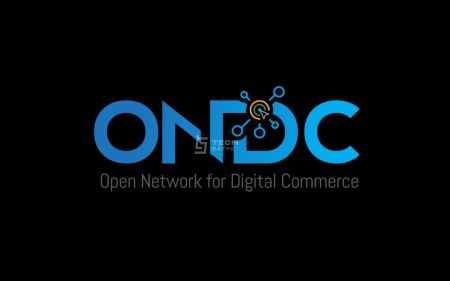It has been a few days since Daraz’s 11.11 sale which caught the headlines among the e-commerce businesses. These annual and timely offers and sales from various e-commerce and other businesses appear time and again. Also, corporates compete to attract more customers with various offers and discounts on the festive seasons.
In addition to that, various digital wallets and banks have been providing cash backs on digital payments. The corporates also tie-up with these PSPs and banks to provide cash backs and discounts to the customers under various schemes.
However, most of these plans and schemes are commonplace now. So, it’s high time that these businesses think about a new scheme or plan to attract more customers and grow their sales.
You might be pretty aware of EMI plans and offers in vehicles and electronics
A few years ago, Equal Monthly Installment (EMI) plans were most common for home loans and vehicles only. However, as consumer spending increases and people are busier in their works, consumer electronic items are getting more demands. Hence, EMI plans are shifting towards these products too.
Moreover, with the growth of internet consumption, gadgets like iPhones, gaming laptops, and streaming devices are also increasing. EMI plans are now also available for these devices like in vehicles and homes. Some offers even allow 0% interest on these. Generally, these facilities are backed by the loans scheme from banks and financial institutions where you get to pay a little or no interest on purchasing these products.
E-commerce businesses are handling these types of sales plans; still they need to upgrade now
A few years ago, there are just a handful of e-commerce platforms with limited reach in the main cities in Nepal. The Covid-19 crisis has done one benefit in the business environment of Nepal. It has contributed to the rise of e-commerce businesses in Nepal. Now, there are numerous online businesses mushrooming here with various plans and schemes.
Still, there is one way to attract more sales which these businesses are overlooking.
If vehicles can be sold in 0% down payment, why not we introduce such thing in e-commerce?
You might have seen in these hoarding boards that read “Buy your new vehicle at 0% down payment”. These payment plans are backed up by banks and finance companies that are licensed to provide hire purchase facilities.
In simple words, it just means “Buy Now, Pay Later.”
Well, if you need more explanation, it is just an upgraded version of EMI plans. However, in EMI plans, you need to pay interest in most cases. Few of them are interested free like “No cost EMI”. However, they are mostly found in high-cost products like homes, vehicles, furnitures, and expensive gadgets. EMIs are mostly monthly or annually in nature. However, Buy Now Pay Later Schemes are run for a short period of time in general.
Most of the e-commerce businesses are confine their payment plans under cashback and discounts only. A few of them have introduced pre-order sales. For small and medium e-commerce businesses in Nepal, “Buy now, pay later” plans can be much effective if implemented.
What is Buy Now Pay Later plan?
As the name prevails, the customer buys something from the seller and pay it later at some point in time. Some of the sellers accept payments in installments with no interest. The payment plans are generally either monthly or annually in nature. This means you need to pay back the price of that product within a month or a year according to the plan. In addition to that, you won’t have to pay the interest if you pay within that period. But if you don’t, you have to pay late charges.
The benefits?
Buy Now Pay Later (BNPL) schemes are more popular in the foreign market. Even Daraz had followed this strategy in Pakistan. In Nepal, Daraz introduced “Shop Now, Pay Later” campaign with 0% EMI plan on gadgets. Some furniture dealers and mostly car dealers in Nepal have introduced this offer. The sellers have the records of their customers such that the issue of fraud from the customers after buying a product does not arise.
Still, small businesses are either unaware of it or they are ignoring the pros of this plan. BNPL schemes are beneficial for both buyers and sellers at large. Here’s how the sellers can benefit from it:
- Firstly, it is a great way to attract the customers and induce sales from them
- Secondly, most businesses use this plan to empty their stocks sooner and add new products
- Thirdly, BNPL schemes are more effective for impulsive buying. E-commerce businesses can use this strategy on the sales of products like electronics, gadgets, books etc
- Most importantly, you are more unlikely to return the product that you have already used. So, it gives the power in the hands of sellers for return policy. It reduces returns from the customers.
The buyers also won’t go empty handed with Buy Now, Pay Later Schemes
BNPL schemes are mostly credit on point of sale. It means you can consume a product or a service without paying for them during purchase. It can be a savior when you are not having enough balance to pay. Unlike credit card, you do not have to pay interest on these schemes. Moreover, these plans are more effective for emergency purchases.
Just imagine in case you are somewhere in Nepal away from your home town. To add on this, let’s suppose you do not have enough balance on your bank or digital wallets and have no hard cash at all. In that case, if you need to buy a set of new suits to attend a meeting instantly, you can simply order from any e-commerce that is providing “Buy now, pay later” scheme.
Next scenario can be you are on a trekking to Mustang but you lost all your money and belongings on a theft. (I pray that won’t happen to anybody!) However, if such thing happens and you are out of payment options, BNPL schemes can provide you a shelter at a hotel and good food with a great hospitality!
Not only e-commerce, but also our hotels and hospitality businesses can foster with Buy Now Pay Later Schemes
The outbreak of Covid-19 has engulfed our tourism sector under loss for nearly two years. Some of the hotels with a long history have also been closed because of their losses. The closure of Hotel Annapurna hinted a threat for other hotels too, highlighting a deep trouble in the tourism sector.
However, they can make a huge comeback with “Buy now pay later” plans. In the language of hospitality, they can introduce “Stay now, pay later” schems where the tourists can stay in their hotel and pay for that later within a few days. In such case, they won’t be charged extra than the selling price. No additional fines or interest are charged. However, the hotels need to have a strong record for tracking the customers of these schemes so that they won’t get trouble during a payback.
What are the requirements for effective Buy Now Pay Later Plans?
Well, first of all, these plans must be backed by financing facilities by banks and financial institutions (BFIs). For example, if you buy something from SastoDeal today under “BNPL” scheme, it might offer you this facility only if you are a customer of a certain bank. Most of these schemes require your credit card to pay back. In some cases, digital wallets can also serve as the payment partner. It creates a mutual benefit for all the three parties. The customer gets to consume products soon, the seller can sell their products and the financing partners like BFIs and digital wallets can increase their brand value. In some cases, they even receive commission from the sellers/ merchants as a service charge.
Aslo Read: Debit Card VS Credit Card: How to Make the Most Out of Them?
The most secure way is to introduce banks and financial system and digital wallets for payment because they have al the record of the customers through KYC. Hence, one a customer purchases products under BNPL schemes from the merchants, their identification can be tracked through the payment partners and there is less chance of fraud.
There are numerous ways the e-commerce businesses can use “Buy Now Pay Later” schemes for increasing their profitability. Nepalese businesses can learn a lot from foreign markets where BNPL schemes are more popular and they are generating a huge revenue from it. Let’s hope such plans arrive sooner in Nepal, mostly in the e-commerce sectors.






